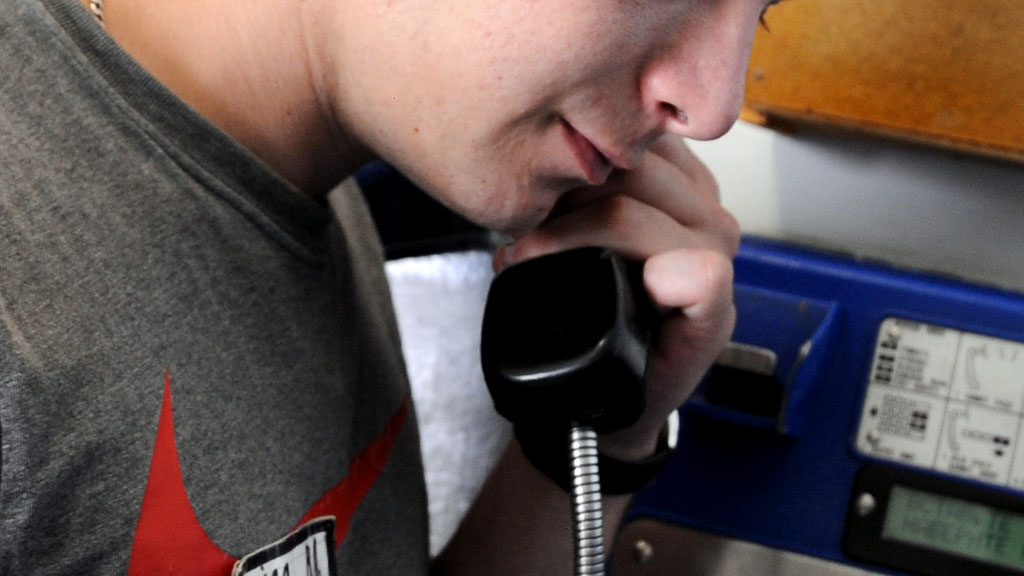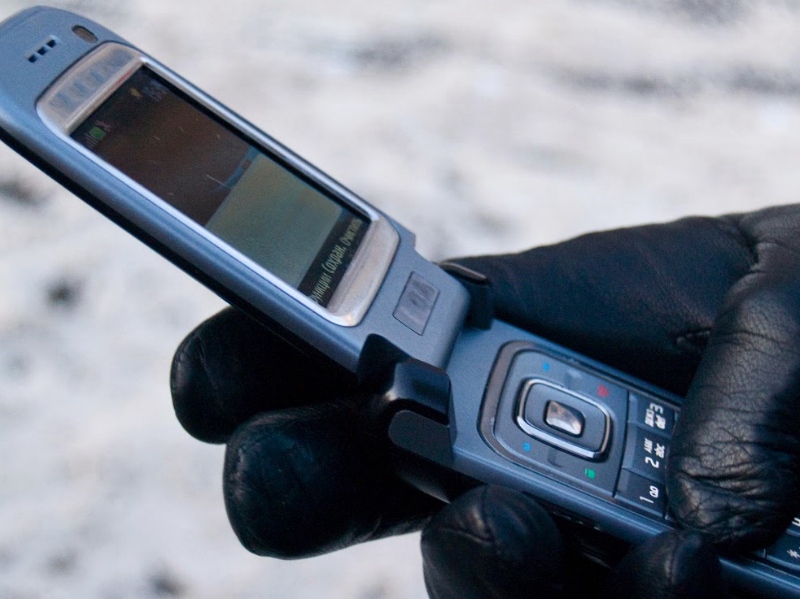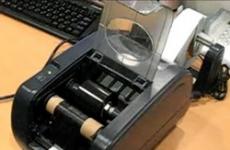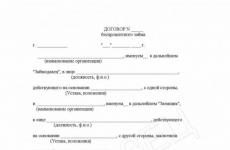Fine for falsely calling police, firefighters and ambulance. False ambulance call
Larisa Rakitina dealt with the problem of false and unfounded calls
I once witnessed how an ambulance brought a heavily pregnant patient to the emergency department who complained of abdominal pain. The ambulance diagnoses all pregnant women with such complaints as “threatened miscarriage.” The woman told the gynecologist on duty that she had no and never had any abdominal pain, she just couldn’t wait to find out the sex of the child, and incoming patients were given an ultrasound. She did not understand the indignation and indignation of the duty team, telling them: “You are still working.”
Alas, this case is not the only one: people often use ambulance or emergency help, and also call the local police officer to their home when this is not necessary.
Unlike ambulance (EM), emergency care exists only in Moscow, St. Petersburg and some others major cities, it is part of the structure of district clinics and takes on part of the work of the joint venture. Doctors emergency care They make 24-hour home visits only and only in cases of non-dangerous acute illnesses, such as high fever due to acute respiratory viral infections, and exacerbation of chronic diseases, for example, during a hypertensive crisis. Patients call for emergency help through the clinic reception or through 03.
Doctor's house calls are different
All doctor’s house calls, regardless of whether they are addressed to ambulance or to a local physician, can be divided into three categories.
Justified- a doctor is called when medical assistance is required for serious problems and the patient is not able to independently get to a health care facility. For SP, these are, for example, injuries that limit the ability to move, 3-4 degree burns, an attack of chest pain that cannot be relieved by nitroglycerin, prolonged asthmatic status and other life-threatening conditions. For the district police officer, these are colds with high temperature or deterioration in the well-being of chronic therapeutic patients.
Unfounded- the patient does not pose an epidemiological danger and could easily reach the clinic on his own. For example, at a temperature of 37.8 °C. In the case of a joint venture, a call is considered unreasonable when there is a serious threat to the health and life of the patient in at the moment does not exist. For example, a temperature of 38.2 °C with a headache.
False calls for ambulance or doctor- this is ordinary hooliganism, the door not opened to the doctor or the patient’s absence at the specified address. Because of such challenges, patients who really need timely help suffer. In addition, false calls cause significant material damage to the state - the cost of one joint venture in 2012 averages 1,700 rubles.
Unfortunately, for our healthcare system, the problem of false and unfounded calls is very relevant, the share of which for the emergency service service ranges from 30% in cities and up to 60% in rural areas. There are no official statistics on the work of the district service.
The law does not prohibit unreasonable calls to the doctor and SP
We have a legislative gap in the area of calling doctors at home. Federal Law There is no regulation regulating SP calls.
The latest regulatory document on this topic dates back to 2003 (Federal Law No. 131 “On general principles local government organizations in Russian Federation") and refers the organization of the provision of emergency medical services to the powers of local self-government bodies. The document does not specify which call is considered justified and urgent. In the regions there are orders and job descriptions, differentiating reasons for calls by categories of urgency. However, they are internal documents for official use, and the population in most cases has no idea about their existence and calls the SP when emergency assistance is really necessary and when there is no reason to contact the SP.
We also do not have a model for organizing outpatient care at home that is legally established at the federal level. Article 37.2 of the Federal Law “On the Fundamentals of Protecting the Health of Citizens in the Russian Federation” dated November 21, 2011 No. 323-FZ states: “procedures for the provision of medical care and standards of medical care are approved by the authorized federal executive body.” That is, the rules for calling a doctor at home should be developed by the Ministry of Health, which currently has no regulatory documents has not been made public on this topic.
The procedure for providing medical care at home by the clinic is determined regulations and territorial programs of the subjects of the Federation, and if there are none in the region - local acts Health care facilities agreed upon with local health authorities. But there are no documents regulating the validity of calling a local doctor to the house at any level; at most, the indications for the team to visit are listed, although the problem of false and unfounded calls is very relevant.
The ice was broken or the fee for calling an ambulance
In different regions of Russia, attempts are periodically made to legally establish rules for calling an ambulance, but without much success. For example, in Yekaterinburg in 2008, a draft of such a law was developed and put up for public discussion. In particular, it explained the difference between an outpatient department and an ambulance that responds to a life-threatening situation. Residents of the city perceived it as an infringement of their freedoms and deprivation of the right to free healthcare granted by the constitution and categorically rejected the proposal of the local authorities.
In Stavropol, in 2006, by decision of the city mayor, a fee for calling an ambulance was introduced - 150 rubles. At the same time, veterans of the Great Patriotic War, blockade survivors, Chernobyl victims, children, disabled people and some other categories of citizens received benefits in the amount of 50 or 100%. As a result, the average daily workload on the team was reduced by 40% and the speed of ambulance arrival at the site increased - 70% of the teams reached a call in less than 15 minutes, compared to the standard of 15-20 minutes. But in 2007, the mayor’s order was protested by the prosecutor’s office, and everything returned to normal.
It is clear that in order to solve the problem of false calls to SPs and the introduction of liability, legislative innovations must be implemented at the state level. But even on a national scale, a bill designed to reduce the work of joint ventures to urgent conditions may well cause a storm of indignation - citizens are accustomed to the right to call a team of several people for free at any time of the day to make sure that nothing terrible is happening.
Visiting the Jokers
You may remember shining example false call by the joint venture, which received wide resonance in the media: during New Year's holidays, when emergency medical services are overloaded, the dispatcher of the joint venture in Chelyabinsk received a call from a corporate party. The caller reported that a young man was dying. All vehicles serving the area were busy and, given the seriousness of the case, entertainment center A joint venture vehicle was sent from a neighboring area. When the team arrived to the call, it turned out that no one was dying. According to the evening’s scenario, one of the animators “fell ill,” and the doctors had to play along, depicting resuscitation measures. The animators did not react to the brigade’s indignation and insisted on continuing the performance, offering a monetary reward (5,000 rubles to each health worker) and participation in the festive banquet as compensation.
Fine for false emergency call
Residents of Chelyabinsk proposed imposing large fines and correctional labor on the pranksters as punishment. However, the only penalty provided for by current legislation for such acts ( deliberately false call fire department, ambulance or other specialized services) - an administrative fine in the amount of 1000 to 1500 rubles(Article 19.13 of the Code of Administrative Offenses of the Russian Federation). Of course, the service may demand compensation for the cost of driving the car, moral damages, but the “victims” are not guaranteed a positive outcome from such a trial.
The police are protected from knowingly false reports of impending crimes and terrorist attacks not by the administrative code, but by the criminal code, and more serious liability is provided for them - large fines, correctional labor, or even imprisonment (Article 207 of the Criminal Code of the Russian Federation).
Give me a doctor!
Often, citizens of the Russian Federation call a joint venture not out of a desire to joke and have fun, but as a precaution. That is, there is a reason to see a doctor, but there is no urgency and no need for his immediate arrival. The population is “spoiled” by the existing system, because calling an ambulance or urgent care is free.
According to the review “Modernization of the emergency medical service of the Russian Federation: controversial issues", compiled by a doctor-methodologist of the MUZ "SMP Station named after. V.F. Kapinos" in Yekaterinburg by Vladimir Fialko, 30% of ambulance and emergency home calls are unfounded. These include requests from chronic medical patients who could well receive adequate care at the level of a family doctor, a temperature of 37.5°C in an adult, and a reluctance to go to the clinic due to bad weather, and the need to measure blood pressure, and a rash. day, and “Listen to the lungs, otherwise my colleague has pneumonia, and suddenly I have it too.” Elderly patients often call an ambulance because they need communication.
An unjustified call for an ambulance may be justified
Of course, we must not forget that every patient has the right to make a mistake. It is difficult to demand an objective assessment from an acutely ill person (especially for the first time) own state. It is especially difficult for lonely elderly people, and most doctors, knowing that their help can simply be reduced to a soul-saving conversation, are quite lenient towards such patients. After all, our system of care is truly humane, although it clearly lacks healthy pragmatism.
A huge number of unfounded calls are related to alcohol abuse. And finally, in recent years, another significant reason has been added - the lack of a medical insurance policy. Without it, a clinic or hospital may not accept you for free, and an ambulance will go to the patient in any case, since it does not operate in the compulsory medical insurance system. Experienced citizens with an exacerbation of a chronic disease can consciously describe to the dispatcher the actually absent serious symptoms so that the team arrives as soon as possible. Thus, thousands of cars across the country every day essentially perform the function of a clinic on wheels.
Everywhere is good, where we are not
In foreign countries, health care does not waste money and “saves” a lot when visiting a joint venture. In Israel, for example, an ambulance with a team of paramedics who do not have a higher education medical education, but possessing skills emergency assistance, delivers everyone who contacts them to the hospital emergency room, and an amount equivalent to $100 is automatically withdrawn from the patient’s account. If the doctor, after examining the patient, concludes that hospitalization is necessary, the money is returned to the patient. If there was no reason to provide emergency assistance, the call remains paid for personally by the patient.
A similar system operates in some provinces of Canada: if the hospital doctor considers the call to the SP to be unfounded, the patient will be sent a bill for the emergency call. However, there are regions in Canada where every call to a joint venture is free. I believe that the population in these countries takes the opportunity to call a joint venture more responsibly and seriously than ours.
In addition, in non-CIS countries, patients are accustomed to first of all consulting with family doctors, due to which unfounded calls are filtered out even before the patient goes to the emergency room. Unfortunately, such a service is not developed in our country and there is an acute shortage of personnel in the outpatient department, which still makes it difficult to copy the Western model. But at least we have something to strive for.
The clinic goes to Mohammed
The problem of false and unfounded calls is also relevant for outpatient healthcare. And the reasons for such calls are similar to similar reasons at the joint venture. Sometimes the doctor cannot meet with the patient. Maybe the caller entered the address incorrectly or the receptionist wrote it down incorrectly; the door may simply not be opened at the correct address. It happens that relatives do not want to wake up a sleeping patient or the patient just went to the pharmacy at that time. Working in a clinic, I regularly heard from local police officers that they went to see the patient in vain; he could easily have arrived at the clinic himself. The number of false and unfounded calls is largely determined by how the registry operates. An experienced receptionist, armed with a clear algorithm for sorting calls, will help the doctor reduce the number of fruitless trips.
Most private clinics in such cases impose a fine on the patient, the amount and the wording “false call” are clearly stated in the contract for medical services. This measure disciplines patients, but it is not applicable in a municipal clinic.
It is within our power...
...improve the quality of the registry's work. For this purpose the eldest nurse must give clear instructions to registrars. In addition, it is necessary to constantly conduct explanatory conversations with the most anxious and quick to make false calls patients at the site. When meeting with them, it is worth patiently and clearly explaining to them in what cases to call you at home, and in what cases to go to the clinic on your own.
Ideal option
The problem of false calls is largely a consequence of the imperfection of the organization of our healthcare, primarily the lack of uniform regulatory documents regulating the rules for providing medical care at home. We really lack unified call centers in which trained receptionists would sort calls for calls for an ambulance, for visiting a local police officer at home, for self-referral to hospital emergency rooms and for ordinary outpatient visits. Today, virtually anyone who dials “03” will receive one or more specialists “at their disposal,” which in 30-60% of cases turns out to be completely unfounded.
We also really lack a citizen education program that would teach them how to call an ambulance in truly serious cases. Perhaps a system of small fines for unreasonable and large fines for false doctor calls home could become a kind of training tool.
But for now these are dreams and utopia, as clearly demonstrated by a reasonable attempt to streamline ambulance calls in Stavropol, which was stopped by the Prosecutor’s Office.
The fire department is one of the fastest responding organizations, since the speed of fire spread is so high that there can be no delays.
You will be interested to learn about fire protection in large cities in our article:
The population's responsibility to fire brigades should be quite high! At enterprises, in and public organizations where there are special units rapid response in the event of a fire, people know very well that the rules of conduct when a fire is detected include a recommendation to call the fire department immediately if a fire is suspected. And if a vigilant citizen calls specialists, mistaking the smoke from burnt food in the dining room or the reflection of the setting sun on the river bank for a flame, this, of course, causes indignation. But those who deliberately make false calls deserve even more outrage.
This certain groups people:
- children who want to make fun of someone;
- people with unstable mental health;
- hooligans;
- those who are under the influence of alcohol and drugs.
An unjustified departure of the fire brigade is a waste of resources, because in addition to the dispatch of special equipment, other services are also involved: access roads are blocked, an ambulance also goes to the site, public transport flights are canceled, etc. In addition, at this moment there can always be someone who really needs help, but there is none. It is impossible to leave unpunished those who make false calls.
What is the fine for falsely calling firefighters in Russia?
In accordance with Article 19.13 of the Code of Administrative Violations, No. 195 of the Federal Law of the Russian Federation, which also provides for punishment for deliberately false calls to the ambulance and the police, the first time the offender receives a notice of a fine, the amount of which is from 1 to 1.5 thousand rubles. Responsibility lies with a person who is 16 years of age or older. If the call included information about a terrorist attack, we will be talking about criminal liability starting from the age of 14. Responsibility for the behavior of younger children falls on the shoulders of their parents. And for dishonest performance of parental responsibilities, adults can be brought to administrative responsibility in accordance with Article 5.35 of the Code of Administrative Offenses of the Russian Federation. A minor citizen becomes the subject of police supervision of disadvantaged children.
Which preventive measures What can be done about false calls? This is easier to do in families with small children. Of course, numbers such as “01”, “101” and “112” should be entered into the memory of their mobile phones, but adults should also have conversations explaining to children the responsibility, as well as the consequences “prank call” at these numbers.
One of the violations described above is interpreted by lawyers as administrative, the other is classified as criminal.
Measure of criminal liability
For a case where a false call causes death and causes significant loss of property, it is determined by Article 207 of the Criminal Code of the Russian Federation and represents:
- monetary penalty (wages or other income of the convicted person for a period of up to 18 months);
- a fine of 200 thousand rubles;
- forced labor (from one to two years);
- restriction of freedom (3-6 months);
- forced isolation (up to 3 years).
Without thinking about what kind of fine you can get for making a false fire call, irresponsible citizens do not delve into the fact how wide the possibilities of modern technical means, helping to determine which number the call was made from, and even determine the location of the caller.
Departure statistics show that the number of false and objective calls in Russia are approximately the same. It is not difficult to imagine what kind material damage we are talking about if you know that every three minutes another fire occurs in the Russian Federation, and every four minutes the fire department dispatcher receives another false call. Difficult to respond to in a timely manner real case fire, when it is necessary to send a brigade to a false one.
The draft law on increasing the fine in case of a repeated call has not yet been adopted, but has not yet entered into force; even the proposed increase in the fine to 4-5 thousand rubles is incommensurate with the material and time costs when assistance is not required. According to statistics, about 70 million rubles are spent annually on servicing such signals. To imagine this amount in material equivalent, it is enough to understand that with this money you can provide high-tech fire equipment residents small town, with a population of 100 thousand people.
What are the motives behind such calls to the fire department?
The number increases sharply during school final exams; it happens that such an action is dictated by the desire for revenge. But people who have witnessed a fire and are afraid of making a false call to the fire department, for which a fine should follow immediately, should understand that even a minor fire at work or in a dry forest can lead to the instant spread of fire. Don't delay calling in this case!
It is important to understand: The fire department will always respond to a signal, and if we are talking about reinsurance, then there will be no fine.
We mentioned above cases when the motive for the actions of telephone hooligans was revenge, and the call was made, for example, to an unsuspecting person. In addition to sanctions for telephone hooliganism and false calls to intelligence services, lawyers propose using penalties under Article 129 of the Criminal Code of the Russian Federation for libel in cases where calls about the same person are made systematically. The caller must clearly understand how much the fine for a false fire call will be in this case. We remind you that today it is 1-1.5 thousand rubles and will soon be increased for repeated calls; an alternative is possible in the form of community service in the time free from the main activity. If there are victims (for example, firefighters broke down a door in an apartment, furniture and walls were filled with water and foam), they have every right to sue the author of the “false call” for the damage caused.
You will also find it useful to read our article:
“In what cases are employees of the Ministry of Emergency Situations called to open the front door.”
Every now and then we read headlines in the media and the Internet: “False fire calls have become more frequent in Crimea!”, “Firefighters responded to false calls 14 times a week” (Pushkinsky municipal district, 2016), “In the first quarter of 2016, the central point fire communications 113 messages were received.” Such games with human lives are unacceptable. Everyone must remember that while firefighters are following such a signal, people are dying somewhere else.
The capital's legislators decided to increase the fine for falsely calling the police and other emergency services, as well as toughen the punishment for repeat offenders.
A joke costs your life
The city authorities are concerned about the situation: over the past period of 2016, more than 5% of calls to emergency services turned out to be empty calls. During the 12 months of operation of the 112 operational service, about six million messages were received, while last year 311 thousand calls were made by pranksters.
That is why deputies of the Moscow Regional Duma proposed to their colleagues from the State Duma to toughen the punishment for fans of unsuccessful pranks. If something doesn’t work in a citizen’s head, then let him pay for it with a ruble or let us work with his hands, the authors expressed such conviction, proposing to increase the fine for false calls to firefighters, police, ambulances, and rescuers to one and a half to three thousand rubles. An alternative punishment is one hundred hours of community service.
The deputies also thought about chronic cases. For calling again without a valid reason, the fine will increase to 5 thousand rubles, and you will have to work for the good of society for two hundred hours.
Just a note. Amendments are proposed to be made to Art. 19-13 “Knowingly false call to specialized services” of the Code of Administrative Offenses.
You don’t have to be a rocket scientist to understand that a special team dispatched at the call of a prankster may simply not make it to those who really need help, especially in large cities with their many kilometers of traffic jams. The existing fine for a false call in the amount of one and a half thousand rubles is a ridiculous punishment, while some experts suggest that it should not be limited to administrative liability. Let it only apply to teenagers, they say. If the call is made by an adult, he must think about his actions for three years in a general security prison.
Specific actions
The bill, which would tighten liability for fictitious calls to emergency services, will not be considered until the fall, when the renewed State Duma begins work. In the meantime, Moscow authorities are trying to find other ways to solve the problem.
- The 112 rescue service, which has been operating for a year, has an auto-dialing system installed, so the caller has to listen to robot reminders about administrative responsibility for a fictitious call.
- The jokers' numbers are entered into a special register. SIM card blocking is not provided, because a person may actually need help.
- We plan to install a filter to receive calls from phones without SIM cards. In order to leave a request, a person will have to dial a few additional numbers. As the developers assure, this will not affect efficiency, but will allow you to filter fictitious requests.
Distinguish between terrorism and hooliganism
It is unlikely that ordinary citizens are ready to distinguish between telephone terrorism and hooliganism. The first includes untrue reports about planted explosive devices or other terrorist threat. They are especially popular among schoolchildren who do not want to write another dictation. Meanwhile, this offense implies criminal liability (up to 5 years in prison) and a fine (up to 1 million rubles).
In telephone hooliganism, we are talking about calling emergency services in situations where there are no victims or those who need help. IN last year The State Duma received several bills proposing to tighten criminal liability specifically for terrorism, while hooliganism remained an equally pressing problem throughout the country.
According to statistics from the Judicial Department Supreme Court, for last year In Russia, only 25.5 thousand people were punished for unfunny pranks, although in Moscow alone there were 12 times more “comic” complaints.
Deputies believe that an increased fine for falsely calling an ambulance, police or fire department should stop pranksters. Five thousand rubles is an impressive amount for most Russians. And sweeping the streets, painting fences or weeding flower beds is not as exciting an activity as relaxing at the dacha in the company of your best friends. Please note that public works are performed exclusively during free time from the main activity.
Everyone knows that a timely call to the fire department, ambulance or police can save a human life. Since childhood, we have known the numbers of special services, calling which can protect our life or the life of a passerby. A first-grader who finds himself in a difficult situation should definitely seek help from specialists by calling one of the well-known emergency numbers.
False message
But these calls are not always really necessary; very often they are of an entertaining nature. Hooligans have fun calling emergency services. They do not even imagine that through their fault a person may die if any rescue team does not arrive in a timely manner.
The operator cannot ignore any call coming to the emergency line. But it is not always possible to distinguish a false call. And how sad it is to realize that help is not needed. But any emergency call means the operation of vehicles, equipment, gasoline costs, as well as wasted time on travel and fees.
And most importantly, a false call takes telephone line, and people who need specialist help are left with nothing.
Calling the fire brigade
Every person knows from a very early age - after all, dialing the number “01” or “101”, as well as the single telephone number “112”, can save someone’s life. Currently, there are more and more cases where firefighters respond to so-called false calls. In 2015, more than a hundred accidents occurred in the Moscow region, the causes of which were hooligan calls to the fire brigade. In the Republic of Adygea in 2015, fifty false fire calls were recorded.
Let's figure out what a false fire call is. The average person may mistake smoke or steam generated during the cooking process for a fire. Fires can also be caused by improperly lit fires. In such cases, it is still worth seeking help from fire fighting organization. Firefighters will always arrive promptly at the scene. After all, even a small fire, if handled incorrectly, can turn into a flame and destroy everything around.
It is worth noting that among the false fire calls there are calls that have a completely different purpose. Emergency calls are often a form of entertainment for teenagers. Schoolchildren have fun and have fun with the help of so-called false calls. They often hang up or introduce themselves as other people and name non-existent fire locations. When the firefighters arrive, the children hide in the corners and laugh. Adults, in order to take revenge on someone they know, call firefighters, police or an ambulance.
 The law does not stop hooligans; a fine does not scare them. False calls to firefighters may result in criminal or administrative liability. Calling the police, ambulance or fire brigade without significant reasons for teenagers is punishable by a fine. A child under sixteen years of age is not responsible for the crime committed. Such crimes are dealt with by the Commission on Juvenile Affairs, and the parents of the teenager bear full responsibility in such cases.
The law does not stop hooligans; a fine does not scare them. False calls to firefighters may result in criminal or administrative liability. Calling the police, ambulance or fire brigade without significant reasons for teenagers is punishable by a fine. A child under sixteen years of age is not responsible for the crime committed. Such crimes are dealt with by the Commission on Juvenile Affairs, and the parents of the teenager bear full responsibility in such cases.
How much does a false call cost?
The maximum fine for a false fire call is 10,000 rubles, depending on the degree of damage caused.
The cost of a false call consists of the cost of fuel and depreciation of firefighting vehicles, and property damage from a fire.
The fire brigade was unable to save the burning house from the fire because it responded to a false call.
Responsibility for a false call to firefighters is specified in the nineteenth article of the Code of the Russian Federation on administrative offenses. The article states that a false call to special emergency services is punishable by an administrative fine of up to two thousand rubles.
Modern technology can easily figure out which phone it came from. false call, determine the identity of the caller and hold him accountable for the illegal action.
Often, bullies consider a hoax call to be harmless. But every false call to one of the emergency services means human casualties, material costs and wasted nerves.
I would like to remind you that when calling firefighters, you must follow certain rules:
- give the exact address of the fire location, as well as the place where the fire brigade was called;
- introduce yourself (you must provide the last name, first name, patronymic of the caller, as well as a contact mobile phone number);
- name the preliminary cause of the fire and the exact location of the fire;
- if possible, it is necessary to meet the fire brigade at the place of call.
How much do false calls cost the government?
A terrifying amount - seventy million rubles - is the cost of false calls to the fire service per year.
Material harm is wasted time, monetary resources and human sacrifices. It is impossible to say exactly whether this is a large amount or not. Seventy million rubles are enough to buy firefighting equipment, to build roads, and to treat sick children. Seventy million rubles is to provide a city of one million with the necessary resources for one year.
A false call cannot be valued in monetary terms, because human casualties and destroyed houses are irreparable damage caused by hooligan calls.
 Article two hundred and seven of the Criminal Code of the Russian Federation, “false reporting of non-existent fires that pose a danger to human lives or knowingly may cause property damage,” states that the following types of penalties are imposed for illegal actions of this kind:
Article two hundred and seven of the Criminal Code of the Russian Federation, “false reporting of non-existent fires that pose a danger to human lives or knowingly may cause property damage,” states that the following types of penalties are imposed for illegal actions of this kind:
- a fine of up to 200,000 rubles, as well as deduction of the amount of the fine from the monthly salary of the convicted person for 12 to 18 months;
- correctional labor for up to two years;
- arrest or home confinement from 3 to 6 months;
- imprisonment for up to three years.
Emergency numbers “01”, “02” and “03” are the most important numbers that every person should know. Life, and not only your own, depends on his knowledge. But how often today these most important numbers become a tool for self-indulgence! At a time when, perhaps, someone dies in the neighboring house.
Calling an ambulance, police or firefighters, and in particularly “difficult” cases, all together, for hooligan reasons, is punishable by law. This is called a deliberately false call to specialized services. If you call the special services without any reason, giving a false address, or in order to “annoy” your neighbors, you may be brought to administrative responsibility.
Responsibility for these actions is provided for in Article 19.13 of the Code of Administrative Offenses of the Russian Federation: “Knowingly making a false call to the fire department, police, ambulance or other specialized services - entails the imposition of an administrative fine in the amount of 1000-1500 rubles.” Only a sane person who has reached the age of sixteen at the time of committing an administrative offense can be brought to administrative responsibility. A false report of a terrorist attack implies criminal liability. According to Article 87 of the Criminal Code of the Russian Federation, persons over 14 years of age bear criminal liability.
In case administrative offense committed by a teenager under the age of 16, and a criminal offense committed by a teenager under 14 years of age, then there is no liability, and the case is referred to the commission on juvenile affairs, which applies educational measures to teenagers. In addition to these measures, the parents of a minor offender for failure to fulfill the duties of maintaining and educating minors (Article 5.35 of the Code of Administrative Offenses of the Russian Federation) are brought to administrative responsibility. Administrative liability implies a warning and a fine. And teenagers are registered with juvenile affairs units.
According to Article 207 of the Criminal Code of the Russian Federation, “Knowingly false information about an impending explosion, arson or other actions that create a danger of death, causing significant property damage or the occurrence of other public dangerous consequences"The following punishment will be applied:
- or a fine in the amount of up to 200,000 rubles or in the amount wages or other income of the convicted person for a period of up to eighteen months;
- or correctional labor for a period of one to two years;
- or arrest for a period of three to six months; or imprisonment for a term of up to three years.
According to the Department of Supervisory Activities of the Ministry of Emergency Situations of Russia, only state fire service spends about 70 million rubles a year on false calls. The dispatcher has no right to refuse the call; the car will leave anyway. Everyone should know that by making a false call, you are diverting emergency services, and at this time their help may be needed to save someone's life. Also, you occupy the telephone airwaves, and someone simply cannot get through and ask for help.
WARNING!
All emergency telephones are equipped with an automatic call recording system. You will definitely be found and held accountable!






